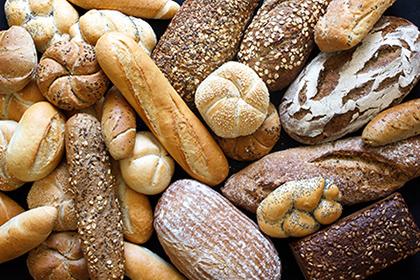Microbe Turns Bread Waste into Useful Compound

Food waste is a big problem, both practically and ethically. Bread, rolls, and other baked goods account for a significant portion. Some bread waste is fed to livestock as a source of carbohydrates and protein, but much of it gets tossed out.
The good news is that an international research team of scientists from the ARS National Center for Agricultural Utilization Research in Peoria, IL, and Ege University in Turkey, found a way to use bacteria to convert the glucose (sugar) in bread waste into a compound known as 2KGA. In turn, 2KGA can be made into valuable compounds such as vitamin C, which is used in foods and beverages, supplements, and pharmaceutical and personal-care products.
The useful bacterium is called Pseudomonas reptilivora.
Read "Microbe Turns Bread Waste Into Useful Compound" to learn more.


